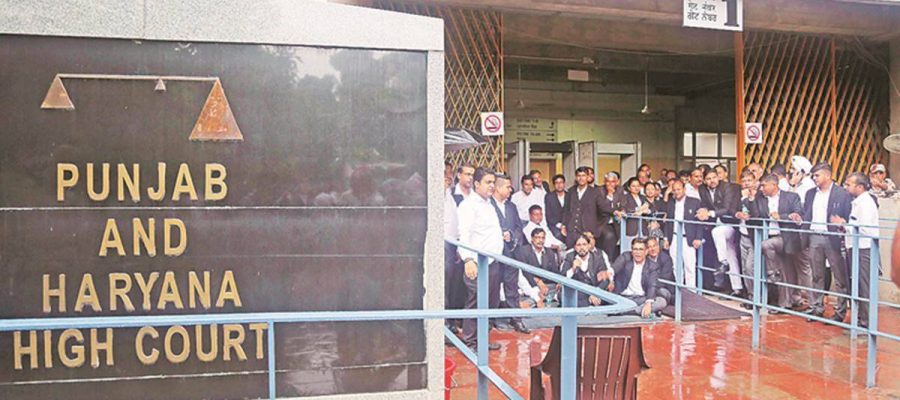The bench further said that the CAT Chandigarh bench has failed to take into consideration the applicability, effect and ambit of operation of the rules framed under proviso to Article 309 of the Constitution.
Giving relief to five assistant professors of Government College of Arts and Government College of Architecture in Chandigarh, the Punjab and Haryana High Court on Saturday directed the UT Administration and the concerned college to re-instate the five petitioners, who had been forcibly superannuated by giving effect to the 1992 Rules, and entitle them to all the consequential benefits.
Issuing the order, the division bench of Justice Augustine George Masih and Justice Ashok Kumar Verma at the Punjab and Haryana High Court set aside the order of the Central Administrative Tribunal (CAT), whereby the petitioners’ plea for restraining the UT Administration from retiring them till they attain the age of 65 years and to consider them for extension in service till the age of 70 years, was dismissed. The High Court bench said that retiring the petitioners at the age of 60 years, which is 58 years with 2 years extension, by applying the Conditions of Service of Union Territory of Chandigarh Employees Rules, 1992, as notified on January 13, 1992, is illegal and thus set aside.
The petitioners, Dr Joginder Pal Singh and others, through their counsel Senior Advocate Rajiv Atma Ram and advocate Arjun Partap Atma Ram had contended that the regulations framed under the All India Council for Technical Education Act, 1987 (AICTE), which is AICTE Regulations, 2010, and thereafter, AICTE Regulations, 2019, would apply, according to which, the petitioners are entitled to continue in service till 65 years of age, with further extension up to 70 years, instead of The Conditions of Service of Union Territory of Chandigarh Employees Rules, 1992, notified on January 13, 1992, according to which, the age of superannuation is 58 years.
The counsels for the petitioner further contended that the respondents are wrongly retiring the petitioners from service by giving effect to the 1992 Rules, which came into effect vide the notification dated January 13, 1992, issued by the President in exercise of the powers conferred by the proviso to the Article 309 of the Constitution.
In reply, the UT Administration asserted that the notification dated December 31, 2008, issued by the Government of India, which is being sought to be enforced by the petitioners working with the Administration, relates to the Central Educational Institutes/Centrally Funded Institutions/Central Universities and, therefore, cannot be made applicable qua the employees working under the Chandigarh Administration.
It further submitted that since they have their own set of rules, which govern the service conditions, including the age of retirement, any notification issued by the Government of India will not ipso facto be applicable without it being adopted by the competent authority.
The bench, after hearing the arguments, held that the aspect that all the funds are provided by the central government could not be disputed by the counsel for the UT Administration. “Once the funds have been provided by the central government, merely because the same were being distributed and utilised by the Chandigarh Administration for running the colleges would not bring it outside the ambit of the centrally funded institutions and in any case, that would not be a requirement per se for the applicability of the AICTE and/or Architecture Regulations,” said the bench.
The bench further said that the CAT Chandigarh bench has failed to take into consideration the applicability, effect and ambit of operation of the rules framed under proviso to Article 309 of the Constitution. It has proceeded to hold that the 1992 Rules will prevail as the regulations framed under the Act have not been adopted by the Union Territory of Chandigarh. The Tribunal has proceeded on a wrong tangent and assumption with regard to the applicability of the regulations viz-a-viz the 1992 Rules. The order passed by the CAT, thus, cannot sustain and deserves to be set aside.
Furthermore, the bench held that the services of the petitioners are governed by the AICTE Regulations, 2010/2019, according to which, the age of superannuation of the petitioners would be 65 years, with provision for extension of 5 years subject to the requirements. Therefore, the action of the respondents in declining the representations/claim of the petitioners for continuing them in service till the age of 65 years as per the AICTE Regulations/Architecture Regulations is unsustainable.
Source: Read Full Article


